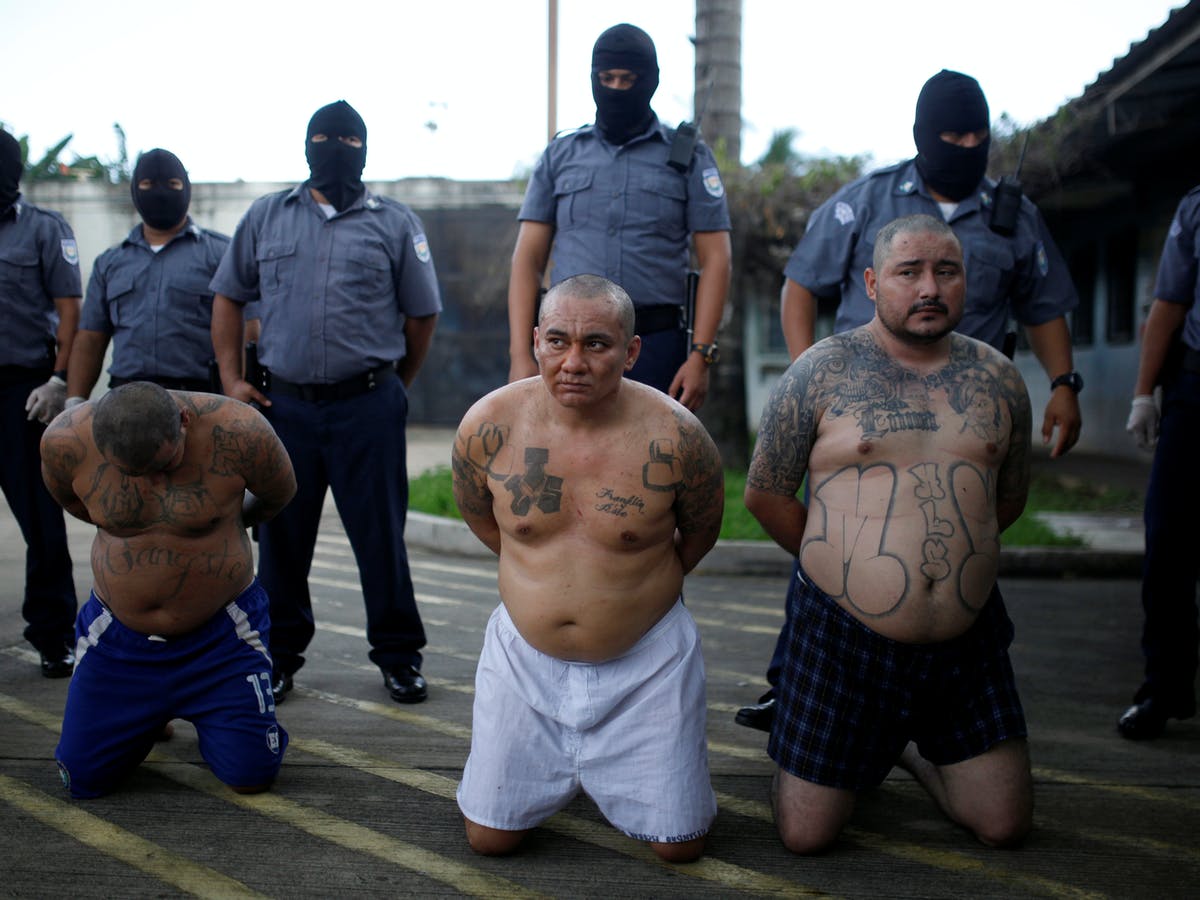How a group of metal heads in Los Angeles in the 1980s evolved into a gang that terrorises three countries is the subject of “MS-13” by Steven Dudley, founder of Insight Crime, a site that covers organised crime in Latin America. The story begins with El Salvador’s civil war, which between 1980 and 1992 left 75,000 people dead and over 1m displaced. Like the guns Ronald Reagan’s administration sent down for use against leftist guerrillas, the gang is an American export. Mara Salvatrucha (“Salva” for El Salvador, “trucha” for “savvy”) first referred to a group of refugees in Los Angeles with tastes for crack and heavy metal. When they took to wielding machetes, America started deporting them.
《野蠻薩爾瓦多人》一書(shū)的主題講述了20世紀(jì)80年代洛杉磯的一群金屬黨是如何演變成為一個(gè)恐怖統(tǒng)治三國(guó)的黑幫,作者是史蒂文·達(dá)德利,也是“犯罪洞察”網(wǎng)站的創(chuàng)始人,該網(wǎng)站涵蓋了發(fā)生在拉丁美洲的有組織犯罪。故事從發(fā)生于1980年至1992年的薩爾瓦多內(nèi)戰(zhàn)開(kāi)始,這場(chǎng)戰(zhàn)爭(zhēng)造成了7.5萬(wàn)人死亡,100多萬(wàn)人流離失所。就如同羅納德·里根政府提供給薩爾瓦多用來(lái)打擊左派游擊隊(duì)的槍支一樣,“MS-13”幫派同樣是由美國(guó)出口的。“MS-13”(“Salva”代表薩爾瓦多,“trucha”代表“精明”)最開(kāi)始指的是洛杉磯的一群對(duì)打擊樂(lè)和重金屬音樂(lè)感興趣的難民。當(dāng)他們開(kāi)始揮舞砍刀時(shí),美國(guó)開(kāi)始驅(qū)逐他們。

Back in El Salvador, MS-13 thrived on the same ingredients that drove the previous generation to take up arms (minus the ideology): poverty, impunity, a culture of violence, lots of young men and too few opportunities. Salvadoreans living under gang control call their teenage overlords los muchachos (“the boys”), a euphemism once used for the guerrillas. Acknowledging the parallel, Mr Dudley suggests that the term “insurgency” properly captures the gangs’ weaponry and political capital.
回到薩爾瓦多,讓“MS-13”幫派蓬勃發(fā)展的因素與促使上一代“MS-13”成員拿起武器的因素相同(不包括意識(shí)形態(tài)):貧窮、有罪不罰、暴力文化、年輕人眾多以及機(jī)會(huì)緊缺。生活在黑幫控制下的薩爾瓦多人稱呼這些少年小霸王為“游擊隊(duì)員”,這是一種委婉的說(shuō)法,曾用于游擊隊(duì)。達(dá)德利承認(rèn)了這一點(diǎn),他覺(jué)得“叛亂”這個(gè)詞恰當(dāng)?shù)刈プ×藥团傻奈淦餮b備和政治資本的特點(diǎn)。
As with rebels of earlier decades, El Salvador’s response hardened the hoodlums. Consecutive presidents packed the prisons, but with virtually no rehabilitation they became gang training grounds. Then, in 2012, an ex-guerrilla forged a short-lived truce between gangs and the government that halved the murder rate but horrified elites and the American embassy (the mediator is now in jail). Still, it set a precedent. Deals continued in secret: support from MS-13 probably swayed the tight presidential election of 2014. Yet official policy reverted to all-out war against the gangs, fuelling a new exodus of migrants to the Mexican-American border, including numerous children. Mr Trump claimed, falsely, that many were gang members.
與幾十年前的叛軍一樣,薩爾瓦多的應(yīng)對(duì)使這些暴徒更加猖獗。連續(xù)幾任總統(tǒng)都把監(jiān)獄搞得水泄不通,但實(shí)際上罪犯并未得到任何改造,監(jiān)獄成了黑幫訓(xùn)練的場(chǎng)所。然后在2012年,前任游擊隊(duì)使幫派和政府之間達(dá)成了短暫的停火協(xié)議,這一舉措使謀殺率減半,但是卻讓掌權(quán)人物和美國(guó)大使館感到震驚(調(diào)解員現(xiàn)在在監(jiān)獄中)。不過(guò)這還是開(kāi)創(chuàng)了先例。交易還在秘密中進(jìn)行:來(lái)自“MS-13”幫派的支持很可能左右了2014年緊張的總統(tǒng)選舉。然而薩爾瓦多發(fā)布的官方政策恢復(fù)了對(duì)黑幫的全面戰(zhàn)爭(zhēng),促使新一批移民涌入美墨邊境,其中包括許多兒童。特朗普謊稱,其中許多人是幫派成員。
譯文由可可原創(chuàng),僅供學(xué)習(xí)交流使用,未經(jīng)許可請(qǐng)勿轉(zhuǎn)載。











